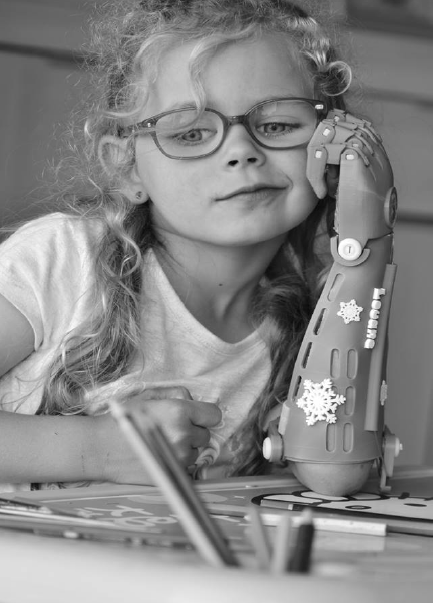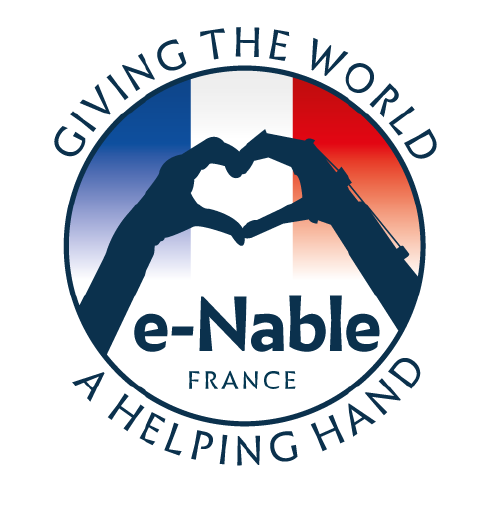Case Study: a non-profit organization utilizes 3D-technologies to offer affordable prostheses
In Short: E-Nable, a non-profit organization in France, uses 3D scanners Calibry to help children with agenesia get affordable and customized prostheses.
The aim: There has been almost no tailored yet inexpensive prostheses for children in France. E-Nables’ aim is to fill this niche.
Instruments: Calibry 3D scanner, Calibry Nest software, 3D printer.
Achieved results: The cost of the prostheses was reduced to 50 EUR keeping full functionality of the customized device.
E-Nable is a French non-profit organization, which uses 3D-technologies to help children with agenesia (absence or non-development of a body part). As Mr. Oquidam, the president and founder of E-Nable France says, 3D technologies not only provide children with affordable and customized prostheses but also help them become secure and confident about their bodies.
Annually, in France, 450 children are born with agenesia. The families usually only have two options:
- Robotized prosthesis which provide autonomy in terms of movement, but are expensive, heavy and fragile. They also don’t always adapt to the morphology of the child’s limb.
OR
- Aesthetic prosthesis. They are easy to find on the market and insurance companies reimburse the expense. These prostheses hide the disability but cannot help in the everyday routine.
E-Nable was created to help children born with missing fingers or even hands, by resolving shortcoming of previously available solutions.
Traditionally, the specialists use mold to produce tailor-made prostheses. 3D-technologies offer a faster result, which is also usually more comfortable for patients. 3D-printed prostheses are not only functional, but also affordable – the cost of one device is 50 euros.

E-Nable has three Calibry scanners in its arsenal. With these devices, a non-expert easily scans the forearm (using geometry mode). During the next stage, the data is processed in Calibry Nest, ready to be 3D-printed. Finally, the prostheses are colored in Frozen, Superman or Batman themes, so each kid can become a superhero.
More than fifty 3D-printed hands are made each year by E-Nable France, helping kids become more confident and self-sufficient.

